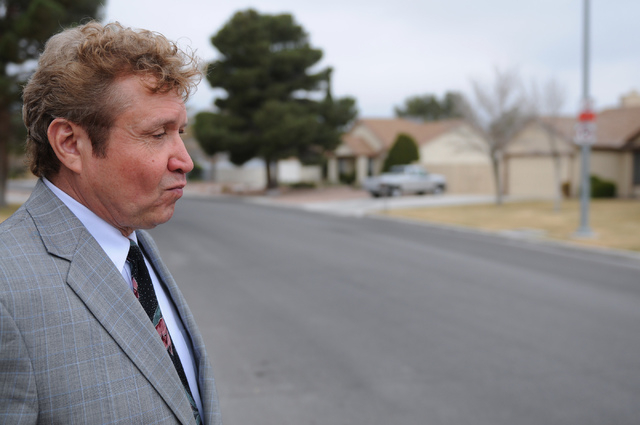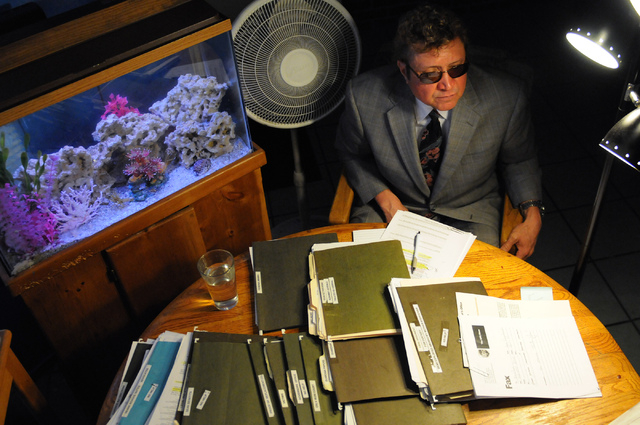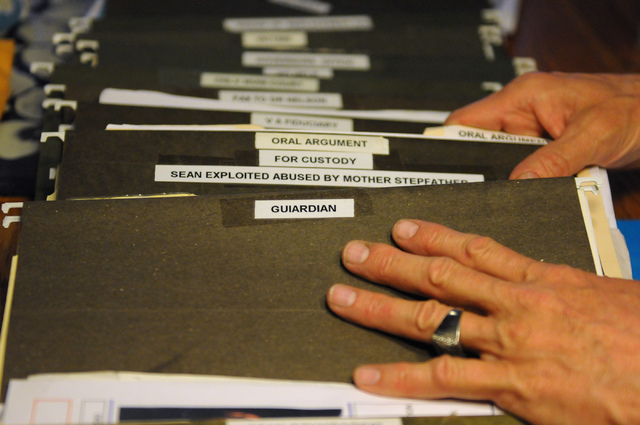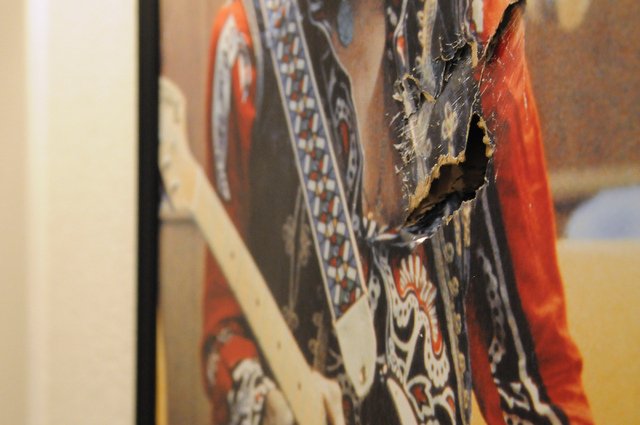Father of mentally ill son: ‘The time has come for all patient dumping to stop’
On May 14, Lee Szymborski came home to find the first floor of his house a wreck.
The property damage was caused by his son, Sean Szymborski, who at the time was 20, the father said.
Windows were broken and so were picture frames hanging in the residence. The now 21-year-old, who is bipolar and suffers from acute psychosis, was under the influence of anti-psychotic medications, according to his father.
He had just been discharged from Spring Mountain Treatment Center on West Sahara Avenue and was sent to Lee Szymborski’s home in a taxi. The father had no idea his son was coming home.
“The time has come for all patient dumping to stop, whether it’s across state lines or in the city,” Lee Szymborski said on Friday. “Spring Mountain has a duty to give him a safe discharge.”
The issue of patient dumping arose last year at Rawson-Neal Psychiatric Hospital in Las Vegas, which was found to be out of compliance with federal requirements on discharge planning.
Darryl Dubroca, CEO and managing director at Spring Mountain Treatment Center, didn’t return calls seeking comment on Thursday and Friday.
In June, the Nevada Division of Public and Behavioral Health launched an investigation into a complaint filed by Lee Szymborski involving the inappropriate discharge of his son from the treatment center, according to state investigation documents. The investigation, which was completed in July, substantiated the complaint, finding the hospital wasn’t meeting state regulations on discharge planning.
Investigators also looked at discharge records for four additional patients. Records for one of those four patients lacked evidence that a social worker and case manager had notified the family of the discharge.
“The patient, members of the family of the patient and any other person involved in caring for the patient must be provided with such information necessary to prepare them for the post-hospital care of the patient,” the documents state.
Documents also show that Szymborski had left messages for his son’s licensed social worker, demanding that his son not be discharged.
Szymborski said he was concerned for his son’s safety.
Sean Szymborski, who didn’t return calls seeking comment Friday, has had mental illness since he was 6, said his father, who has tried unsuccessfully to obtain legal guardianship of his son.
“My son unfortunately cannot live independently,” his father said.
Sean Szymborski is living with his mother, according to his father.
Sean Szymborksi is facing a felony charge related to the more than $5,000 in property damage his father said the home sustained. Lee Szymborski is trying to fight the charges, saying the property damage happened because his son wasn’t ready to be discharged and was medicated.
Spring Mountain Treatment Center last summer re-educated all of its social services staff members on the requirements of developing a safe, comprehensive discharge plan, including having housing arrangements with a valid address and communicating with and notifying family and caregivers if a plan requires it.
Staff members also were retrained to document those items in the medical record, according to a plan of correction submitted to the state by the facility in July.
Such complaints go beyond Sean Szymborksi’s case, though. The practice isn’t isolate, Szymborski contends. Officials with area homeless shelters said Friday that discharged patients from many area hospitals also have been dropped off by taxi at their facilities.
The Shade Tree, a shelter for women and children, had four discharged hospital patients dropped off in January alone, said Marlene Richter, executive director for the shelter. The cases she sees involve not just the mentally ill but those with physical ailments.
“It seems to go in trends where we’ll have a lot (of patients) and we’ll complain and call them (the hospitals) out on what’s happening and work with the social workers, and then it will kind of taper off,” she said.
But then it happens again.
Sometimes the patients arrive in a hospital gown with no shoes, which Richter called “ridiculous.” Most of them arrive in taxis.
“Some of the discharges are so inappropriate that we actually have to send them back to the hospital because they are not able to care for themselves,” she said. “It’s a problem and it’s very difficult.”
As a solution, the shelter has an experienced clinician going around to local hospitals to educate social workers on the services the shelter provides, she said. The shelter does have a good relationship with hospitals when it comes to referring victims of domestic violence, sexual abuse and child abuse to the shelter, she added.
“It’s only a problem when this is not the right place,” she said.
Often times, a rehabilitation center, a group home, a nursing home or an assisted living facility would be more appropriate for some of those discharged patients, Richter said.
A homeless shelter run by the Salvation Army of Southern Nevada also has had discharged hospital patients dropped off in the past, including one who was still wearing a hospital gown stained with blood, said Leanita Hughes, who oversees Salvation Army shelters.
The last time the Salvation Army saw a discharged patient dropped off from a local hospital was about three months ago, she said.
About a year ago, the shelter had one person who, within a 12-hour period, went back and forth from an emergency room and the shelter twice, Hughes said.
“They should have stayed overnight, at least for observation,” she said.
Shelters run by Catholic Charities of Southern Nevada also have had patients dropped off by taxi from local hospitals, said Leslie Carmine, a spokeswoman for the charity.
But, in some of those cases, the charity did get a call from hospital staff before the arrival of the patient, she said.
“They just have to be stable,” she said. “Otherwise they may end up back at the ER.”
Reporter Yesenia Amaro can be reached at yamaro@reviewjournal.com or 702-383-0440.
Related Story
Nevada attorney steers U.S. Civil Rights Commission to patient dumping



































